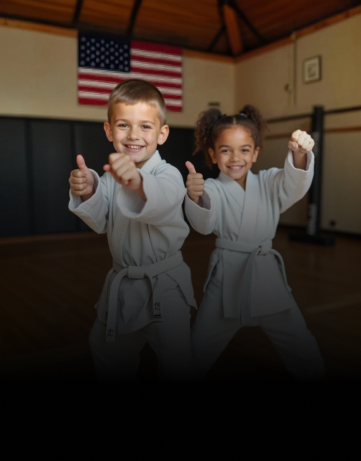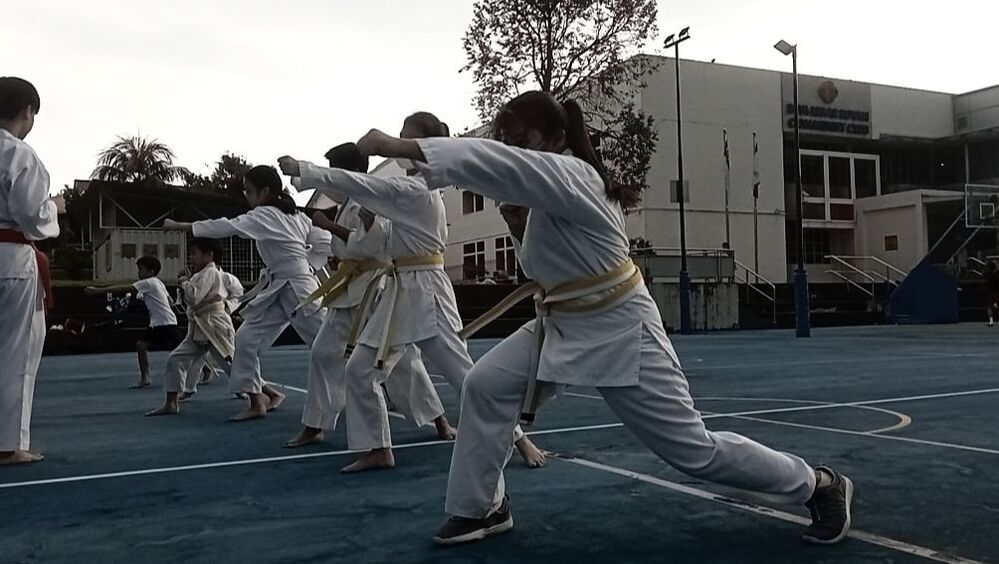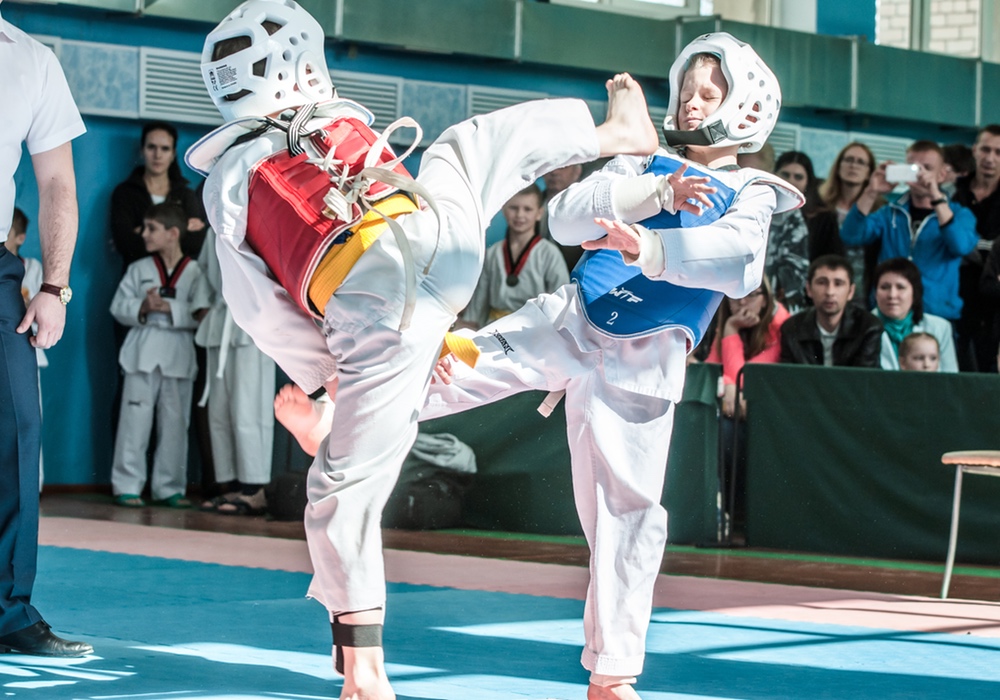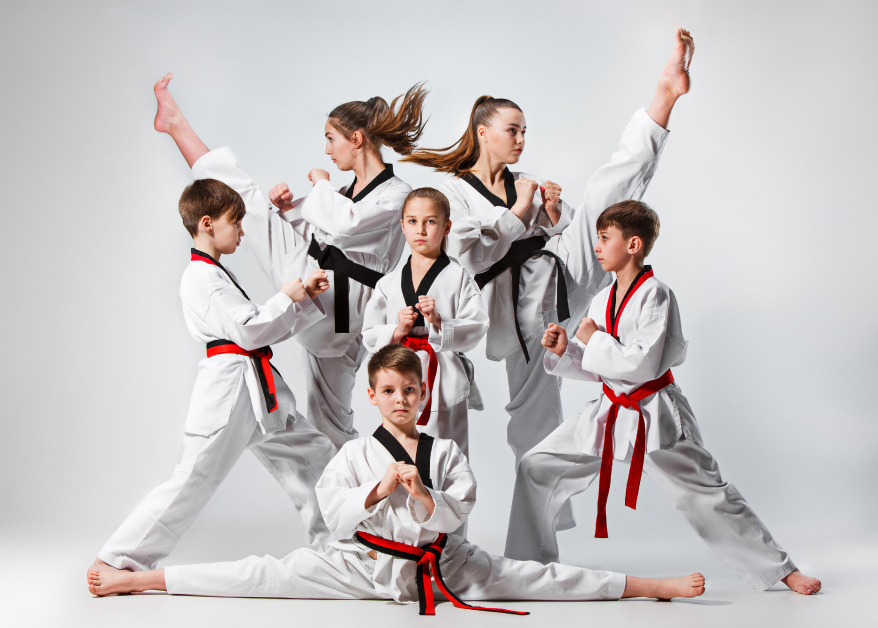Legacy Martial Arts Salisbury – Train with Dedicated Instructors in a Uplifting Setting
Wiki Article
How Martial Arts for Children Can Boost Self-confidence and Technique in Youthful Martial Artists
Karate for children provides an unique chance to build confidence and discipline in young martial artists. As they find out new strategies and face obstacles, they not only get skills but also create a solid sense of self-worth. This structured environment motivates them to appreciate the journey of improvement. Exactly how does this training convert right into their daily lives? Discover the deeper links that make karate greater than just a sport.The Relevance of Self-confidence in Childhood Years Development
Confidence is an essential foundation in childhood years growth. When you support your child's self-confidence, you encourage them to encounter challenges, take risks, and share themselves openly. Children with self-confidence are much more ready to discover new activities and social scenarios, which can cause long-term relationships and valuable experiences.Encouraging your youngster to get out of their convenience area cultivates resilience. They discover that failure isn't the end however instead a stepping stone to success. By commemorating their success, despite exactly how tiny, you help them identify their capabilities and worth.In this journey, assistance and positive support from you play an essential duty. Whether it's with appreciation or just existing, your involvement enhances their self-confidence. As they grow, this self-assurance becomes a long-lasting possession, equipping them to navigate both difficulties and possibilities with a solid sense of self.Just How Karate Teaches Self-control and Emphasis
Karate aids you construct self-control and focus through its organized training program. As you practice mindfulness throughout each session, you'll learn to concentrate better both on and off the floor covering. And also, setting and accomplishing goals in karate strengthens your capacity to stay committed and attentive.Structured Training Regimen
While you involve in karate training, you'll promptly discover how a structured program instills self-control and focus in young experts. Each class follows a specific format, including warm-ups, method method, and sparring. This consistency teaches you to value the process and dedicate to renovation. As you learn methods and types, you establish a sense of duty for your own progress.The structured atmosphere motivates you to establish goals, whether mastering a new belt or perfecting a kata. You'll find that remaining focused throughout drills and classes develops your focus. The discipline you grow in martial arts prolongs past the dojo, positively influencing your schoolwork and everyday routines. Each session enhances the importance of commitment, assisting you grow right into a much more regimented person.Mindfulness in Method
As you practice martial arts, you'll locate that mindfulness ends up being an important part of your training. Each relocation requires your full attention, helping you remain concentrated on the present moment. You'll find out to disregard interruptions and focus on your breathing, movements, and objectives. This heightened understanding hones your reflexes and improves your discipline.During sparring or types, you'll find the importance of being emotionally existing - Karate Salisbury MD. You'll see exactly how this emphasis not only boosts your method but likewise builds your self-confidence. By practicing mindfulness in karate, you cultivate patience and durability, necessary qualities that expand past the dojo. In this method, martial arts educates you to harness your mind, helping you develop a disciplined approach to difficulties both on and off the mat
Goal Setup Techniques
Establishing objectives in martial arts isn't nearly making belts; it's a powerful means to cultivate discipline and emphasis. When you establish certain, achievable targets, you create a roadmap for your development. As an example, as opposed to simply aiming to boost your kicks, attempt concentrating on grasping a specific technique each month. This method maintains you inspired and engaged.Breaking down larger goals into smaller, manageable steps assists you track your progress and commemorate little triumphes in the process. Whether it's perfecting your stance or enhancing your sparring endurance, every goal strengthens your commitment. As you attain these objectives, you'll build self-confidence in your skills and create a solid feeling of technique that expands beyond the dojo right into everyday life.Building Resilience With Martial Arts
Fighting style, specifically karate, supplies youngsters a special chance to build strength in a supportive atmosphere. In courses, they deal with difficulties that press their limitations, whether it's mastering a new method or sparring with a partner. Each setback, like a missed out on kick or a shed suit, comes to be a chance to find out and grow.As they exercise, kids discover to accept pain and maintain trying, also when points get tough. They find that failing isn't completion; it's component of the journey. This mindset helps them get better stronger, not just in the dojo, yet in everyday life.With each obstacle they get over, your youngster constructs confidence in their capability to tackle challenges, fueling their resolution. Via martial arts, they'll understand that durability isn't almost physical strength; it's regarding mental grit and perseverance, equipping them to deal with whatever life tosses their means.The Function of Regard in Martial Arts Training
Respect is a fundamental principle in karate training, promoting a culture of discipline and sociability mina kimes among students. When you tip onto the dojo floor, you're not simply learning strategies; you're also learning to appreciate your trainers, peers, and the art itself (Karate Salisbury MD). Bowing at the beginning and end of course isn't simply a formality; it symbolizes your acknowledgment of others' dedication.as and efforts you establish mutual respect, you'll find it enhances your understanding experience. You'll listen extra attentively to your teacher and gain insights from fellow students. This atmosphere urges useful objection and assistance, allowing every person to grow together.Moreover, respect grows self-control. Recognizing the value of effort and humbleness helps you remain concentrated on your training. Consequently, this respect converts into your everyday life, boosting your interactions and relationships outside the dojo. With karate, you discover that respect is important for individual growth and area buildingAttaining and setting objectives Success in Martial arts

Social Skills and Teamwork in the Dojo
check these guys out While training in the dojo, kids naturally establish necessary social abilities and synergy capacities. As they exercise together with peers, they discover to connect efficiently, share room, and support one an additional. Each class provides opportunities for collaboration, whether it's throughout partner drills or group exercises. This teamwork promotes relationships and creates a feeling of belonging, making the dojo a nurturing environment.Kids likewise get useful problem resolution abilities. When they run into obstacles, such as disputes throughout sparring, they find out to navigate these circumstances constructively. They practice perseverance and empathy, comprehending that everybody has different toughness and weaknesses.Moreover, taking part in team activities cultivates a sense of responsibility. You'll see your youngster finding out to depend on teammates and take responsibility for their function in a group. These experiences not only enhance their fighting styles trip but likewise equip them with social tools they'll bring into other locations of life.
The Long-Term Perks of Karate Beyond Youth
As youngsters grow up and shift right into the adult years, the advantages of karate prolong far beyond the dojo. You'll discover that the technique and emphasis learned via karate can convert into your specialist and scholastic life. Establishing and accomplishing goals in martial arts cultivates a solid work ethic, which can push you to master any type of endeavor.Moreover, the confidence obtained from understanding methods and competing can boost your self-worth, aiding you deal with difficulties head-on. This durability ends up being vital as you deal with the unpredictabilities of adulthood.Additionally, the social abilities developed through synergy and sociability in the dojo can bring about much better connections in both professional and individual balls. You'll discover to connect properly, resolve problems, and build an encouraging network.Ultimately, karate forms not simply proficient martial musicians, but well-rounded people ready to handle the globe.Frequently Asked Concerns
What Age Is Ideal to Start Karate for Children?
You can begin karate as early as age four or five, but it commonly depends on your child's maturity and interest. Finding a course that suits their age and power degree makes a large difference.Exist Any Type Of Health Perks From Exercising Karate?
Yes, exercising karate deals various wellness benefits. You'll boost your coordination, stamina, and versatility while increasing cardiovascular health and fitness. Plus, it improves focus and mental wellness, making it an amazing option for overall physical and psychological wellness.Exactly How Typically Should Children Attend Martial Arts Classes?
You ought to motivate your youngsters to attend karate classes at the very least a couple of times a week. Uniformity aids them discover methods efficiently and develop abilities, making their experience extra rewarding and delightful in the long run.Can Karate Help With Taking Care Of Anxiousness in Children?
Yes, martial arts can help manage anxiety in children. It educates focus and self-control while supplying a secure outlet for power. You'll notice your youngster expanding a lot more certain and calm as they exercise regularly.What Gear Is Required for Kids Starting Martial Arts?

Report this wiki page